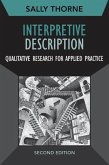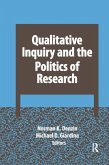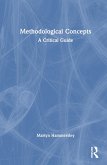Qualitative content analysis is a powerful method for analyzing large amounts of qualitative data collected through interviews or focus groups. It is frequently employed by students, but introductory textbooks on content analysis have largely focused on the quantitative version of the method.
In one of the first to focus on qualitative content analysis, Margrit Schreier takes students step-by step through:
- creating a coding frame
- segmenting the material
- trying out the coding frame
- evaluating the trial coding
- carrying out the main coding
- what comes after qualitative content analysis
- making use of software when conducting qualitative content analysis.
Each part of the process is described in detail and research examples are provided to illustrate each step. Frequently asked questions are answered, the most important points are summarized, and end of chapter questions provide an opportunity to revise these points. After reading the book, students are fully equiped to conduct their own qualitative content analysis.
Designed for upper level undergraduate, MA, PhD students and researchers across the social sciences, this is essential reading for all those who want to use qualitative content analysis.
In one of the first to focus on qualitative content analysis, Margrit Schreier takes students step-by step through:
- creating a coding frame
- segmenting the material
- trying out the coding frame
- evaluating the trial coding
- carrying out the main coding
- what comes after qualitative content analysis
- making use of software when conducting qualitative content analysis.
Each part of the process is described in detail and research examples are provided to illustrate each step. Frequently asked questions are answered, the most important points are summarized, and end of chapter questions provide an opportunity to revise these points. After reading the book, students are fully equiped to conduct their own qualitative content analysis.
Designed for upper level undergraduate, MA, PhD students and researchers across the social sciences, this is essential reading for all those who want to use qualitative content analysis.
This book provides a well written, clear and detailed account of QCA, highlighting the value of this research method for the analysis of social, political and psychological phenomena
Tereza Capelos
University of Surrey
Schreier writes clearly and with authority, positioning QCA in relation to other qualitative research methods and emphasising the hands-on aspects of the analysis process. She offers numerous illuminating examples and helpful pedagogical tools for the reader. This book will thus be most welcomed by students at different levels as well as by researchers.
Ulla Hällgren Graneheim
Umeå University, Sweden
Tereza Capelos
University of Surrey
Schreier writes clearly and with authority, positioning QCA in relation to other qualitative research methods and emphasising the hands-on aspects of the analysis process. She offers numerous illuminating examples and helpful pedagogical tools for the reader. This book will thus be most welcomed by students at different levels as well as by researchers.
Ulla Hällgren Graneheim
Umeå University, Sweden








